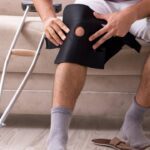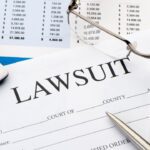Recent Blog Posts

How to File a Car Accident Claim in Florida & Get Compensation
It’s important to take certain steps when filing your car accident claim and pursuing compensation. It starts in the moments following the crash. Report it to your insurer right away and begin gathering evidence if you are able. You also need to be aware of state laws, such as legal filing deadlines, to protect… Read More

How to File a Personal Injury Lawsuit in Florida – Step by Step
If you were hurt in Florida because of someone else’s negligence, you may have the right to file a personal injury lawsuit. While many of these cases settle without going to court, understanding how to file a personal injury lawsuit in Florida can help you more effectively navigate the process to recover fair compensation…. Read More

Should I Get a Lawyer for a Motorcycle Accident in Florida?
If you or a loved one was injured in a motorcycle accident, you could be entitled to compensation from the at-fault party. You could attempt to handle your injury claim on your own, but why would you want to? You should get a lawyer for a motorcycle accident in Florida if: The at-fault driver… Read More

What Happens If You Hit a Cyclist With Your Car in Florida?
If you hit a cyclist with your car, remain on the scene and cooperate with the police when they arrive. Depending on the circumstances of the accident, your insurance company may need to pay for the medical expenses and lost income if the cyclist suffers bodily injury. The injured party may hire a Florida… Read More

What is Considered a Catastrophic Injury in Florida?
When a victim suffers a catastrophic injury in a Florida personal injury accident, their life will never be the same. By definition, a catastrophic injury leaves the victim with a permanent disability, disfigurement, or major scarring. These accidents often prevent victims from returning to work and the activities they previously enjoyed. A Florida catastrophic… Read More

Can I Sue an Employer in Florida for a Slip and Fall at Work?
In Florida, employees are generally entitled to workers’ compensation coverage to pay for their medical care and a portion of their missed pay if they are hurt in an on-the-job fall. In most cases, this means that you cannot sue an employer in Florida for a slip and fall at work. However, some employers… Read More

Florida Dog Bite Laws
Florida dog bite laws allow injured victims and their families to hold a dog’s owner legally responsible for the injuries a dog causes under most circumstances. Dog owners have a duty to keep others safe from their pets. If you were hurt and are considering your options for compensation, a Florida dog bite lawyer… Read More

How to Prove Pain and Suffering Damages in Florida
The severity of your injuries, required treatment and care, and any temporary or permanent disabilities caused by your injuries will help prove your pain and suffering damages in Florida. Because pain and suffering are, by their very nature, intangible, these damages can be difficult to document or estimate. The best way to ensure you… Read More

Traumatic Brain Injury Settlement Amounts in Florida
No two traumatic brain injuries (TBIs) are the same. They require unique treatment, care, and support. They occur in different ways and affect the victims differently. It should come as no surprise that no two traumatic brain injury settlement amounts in Florida are the same, either. A TBI settlement will be based on your… Read More

How Do You Win a Slip and Fall Case in Florida?
Winning a Florida slip and fall injury case requires gathering and presenting strong evidence to show the property owner or another liable party acted negligently and this caused your injuries. This can be difficult to do on your own, especially while you are recovering from serious injuries. Having a Florida slip and fall lawyer… Read More

How Long After a Slip and Fall Can You Sue in Florida?
Like every other state, Florida has a time limit for how long after a slip and fall you can sue. The statute of limitations, a law that establishes deadlines for personal injury cases, sets this timeline. If you contact a Florida slip and fall lawyer early enough in the process, they can ensure you… Read More

Statute of Limitations and Florida Premises Liability Cases
All personal injury cases in Florida have deadlines called statutes of limitations. You need to know what the statute of limitations for premises liability cases is to avoid jeopardizing your right to compensation. Our Florida premises liability lawyers will help you manage all applicable deadlines. What Is the Statute of Limitations on Premises Liability… Read More

Who Is at Fault in a Florida Motorcycle Accident?
Fault in a Florida motorcycle accident will rest with the party whose negligent actions led to the crash. Often, this is a car or truck driver, but it could be another motorcyclist, a property owner, a manufacturer, or another liable party. A motorcycle accident lawyer with our law firm can help you investigate your… Read More

What to Do After a Motorcycle Accident in Florida
Motorcycle riding offers bikers the fun and excitement of the open road. However, in exchange for that thrill, motorcyclists sacrifice the safety protections afforded by an enclosed four-wheeled vehicle. Riders can suffer severe injuries during a motorcycle accident, which may leave them wondering where to turn. It is vital you know what to do… Read More

How Much Is a Wrongful Death Lawsuit Worth in FL?
How much a wrongful death lawsuit is worth in Florida will depend on the facts of the case. State laws and other variables will determine how much financial compensation a claimant can recover and the value of those losses. Working with a wrongful death lawyer from our law firm can help you identify all… Read More

Average Motorcycle Accident Settlement in Florida
There is no average motorcycle accident settlement in Florida because every claim is different. Recoverable compensation will depend on the facts of the case and other unique variables. Our team’s motorcycle accident lawyers can use their legal experience and our firm’s resources to identify all of your losses and pursue the maximum compensation possible,… Read More

What is the Average Slip and Fall Settlement in Florida?
When someone suffers a Florida slip and fall injury, the case will be unique from other slip and falls. The recoverable damages in slip and fall cases are based on the injuries, losses, and expenses and could also depend on many other factors. With these many variables, it makes it impossible to determine what… Read More

How Long Do Wrongful Death Lawsuits Last in Florida?
There is no timetable for how long it could take to prepare, file, and settle a wrongful death case in Florida. Many factors could affect how long it takes to navigate this process and possibly secure compensation for your family. There are reasons why delays could occur during each step of the process. Working… Read More

Who Can File a Wrongful Death Lawsuit in Florida?
Under Florida’s Wrongful Death Act, only the personal representative of the victim’s estate can file a wrongful death lawsuit. This party can act on behalf of the victim’s surviving immediate family to recover compensation and hold the liable party accountable. Working with a Florida wrongful death lawyer will ensure you understand the laws governing… Read More

How Do I Prove a Wrongful Death in Florida?
Proving a wrongful death in Florida requires gathering evidence to show the accused party is legally responsible for your loved one’s death through negligence or another wrongful act. The type of evidence available depends on how the victim died and the unique circumstances of the case. When you work with a Florida wrongful death… Read More

When To Contact a Lawyer After a Car Accident in FL?
You should reach out to a Florida car accident lawyer for a free case evaluation as soon as your injuries allow. You may have a right to pursue fault-based compensation if you suffered serious injuries in the crash. However, there is a two-year deadline for doing so, as set by Florida law. You must… Read More

How Many Florida Personal Injury Claims Go to Court?
Sometimes, suing a negligent party is the only way to recover the money you need to cover your costs and losses after a personal injury accident. However, very few personal injury lawsuits actually go to trial. Many of these civil cases do not even require filing a lawsuit. A personal injury claim based on… Read More

How are Personal Injury Settlements Paid Out in Florida?
When an injured party files a personal injury claim or lawsuit and recovers a settlement in Florida, there are generally two ways to receive their payout. These two options include a lump sum single payment or multiple payments over time. As the victim of a personal injury, how your settlement is paid out is… Read More

How to Sue After a Car Accident in Florida
Depending on your car accident, your injuries and losses could be quite serious. Though most cases can be resolved without an attorney, if you are suffering from serious injuries that have kept you out of work, you may want to discuss suing the at-fault driver with an accident attorney. Be advised that you can… Read More

How Much Does an Attorney Charge for a Car Accident in Florida?
Most personal injury attorneys operate their law firms on a contingency fee agreement. Under a contingency fee agreement, the lawyer takes on the client’s case and bears the financial burden of building the case and pursuing compensation. When the lawyer has successfully obtained a settlement or court award, the client pays the attorney’s fees,… Read More

What Fees Do Personal Injury Lawyers Charge in Florida?
Different personal injury lawyers charge different kinds of fees. Many firms will charge a contingency fee, which means that the fee is contingent on the firm’s ability to win your case. You pay no fees until you win your case, and you owe nothing if you do not win. Our Florida personal injury lawyers… Read More

Is There a Cap on Wrongful Death in Florida?
Under Florida law, there is no cap on the amount of compensation you can ask for in most wrongful death cases. The amount you, the deceased’s other relatives, and the deceased’s estate can receive depends entirely on the nature of your respective losses. If you want help pursuing a legal action for the damages… Read More

Florida Statute of Limitations in Personal Injury
In Florida, the statute of limitations in personal injury cases is two years from the date of the accident. Once the two-year anniversary of your accident passes, it will be much more difficult, if not impossible, for you to convince the court to accept your case. Our Florida personal injury lawyers can help you… Read More

Florida Personal Injury Guide
This Florida personal injury guide will teach you about the basics of: When you can sue for a personal injury The personal injury statute of limitations How to pursue the damages you need Hiring our Florida personal injury lawyers to manage your case Can You Sue for a Personal Injury in Florida? If your… Read More

Do I Need a Lawyer if I Get in a Truck Accident in Florida?
You have the legal right to pursue damages from the liable party after a truck crash. Legally, you don’t need a lawyer if you get into a truck accident in Florida. However, remember that: A Florida truck accident lawyer has dealt with cases similar to yours before and knows how to efficiently navigate the… Read More

